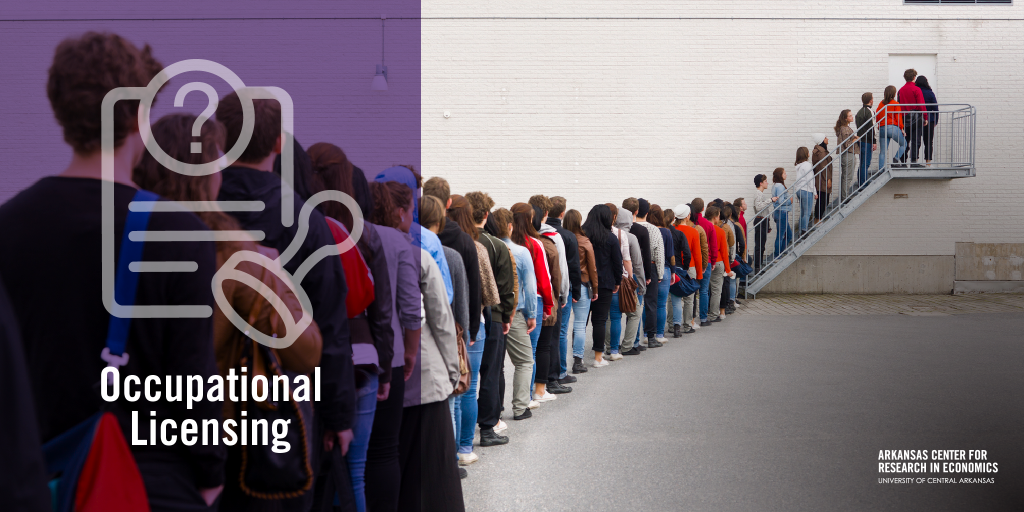By Tanner Corley
We all hate when we get a bad haircut, but should the State of Arkansas be mandating that barbers receive 1,500 hours of training, pass an exam, and pay a fee?
In Arkansas, anyone who would like to cut hair must meet these requirements. In March of 2019, State Sen. John Cooper introduced a bill in Arkansas to eliminate the need for a license to barber. While the bill would have knocked down barriers for low-income entrepreneurs, increased competition, and reduced the price of haircuts, it never received enough support for passage after receiving strong opposition from the Board of Barber Examiners and barbers that benefit from the licensing scheme.
In a paper set to be published in Cato Journal, “For Public Health or Private Gain? The Law and Economics of Barber Licensing in Arkansas” Dr. Marcus Witcher and I explore the origins of the barber licensing law in Arkansas. Through our research with the Arkansas Center for Research in Economics (ACRE), we found that barbers in Arkansas sought a licensing law for their own self-interest. Through legislation, barbers gained control of the licensing board and gave themselves a stark economic advantage by creating barriers to entry for new barbers, while grandfathering in barbers who had already been practicing for six months.
By the time the barber bill was passed in Arkansas in 1937, the Journeyman Barber International Union, the main advocates for licensing, had already developed a strategy for achieving legislation. In the Journeyman Barber Journal, president James Shannesy, urged his union to, “crystallize public sentiment in favor of the Barber’s License Law” by telling the delegates to bring the matter before the trades council and, “show them it is a health measure.” While we were unable to find any evidence that barbershops in Arkansas were a threat to public health, the legislative body passed the bill with public health in mind.
Licensing laws harm Arkansas’s economy, and licensing boards often deprive minorities of their right to work. For instance, from 1938 to 1949, African-Americans taking the barber exam in Arkansas experienced a roughly 63% pass rate while white barbers passed at a rate of 77%. During the same decade that the bill passed (1930-1940), the amount of African-American barbers in Arkansas decreased by 41% while white barbers decreased in number by 20%.
By examining the initial justification for the barber licensing law and its subsequent effects on minorities, it becomes clear that the bill was created to protect entrenched interests and had a negative impact on racial minorities. While the push to eliminate barbering requirements failed previously in Arkansas, the upcoming legislative session of 2021 provides Gov. Hutchinson and Arkansas legislators another opportunity to pass more licensing reforms.
Hopefully, they’ll consider the history of barber licensing and how eliminating the law could help Arkansas’s minority workers and consumers.
For more information on the origins of the Barber Licensing Law in Arkansas and how barbers achieved legislation to protect their own self-interest, see the full paper, “For Public Health or Private Gain? The Law and Economics of Barber Licensing in Arkansas” co-authored by Tanner Corley and Dr. Marcus Witcher. The paper has been accepted and will be published in Cato Journal’s 2021 Winter Edition.
Tanner Corley is currently working on a research paper on how the barber license law affected African-Americans in the economy and will build on some of the data in this post.

